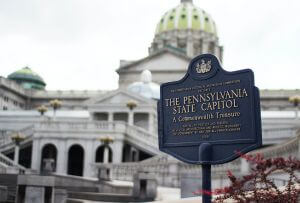PA CHAMBER LAYS OUT MULTIPLE CONCERNS WITH FEE DISCLOSURE LEGISLATION

The House Consumer Protection Committee held an informational meeting last week on legislation that, if enacted as currently drafted, could create significant new challenges for businesses.
House Bill 636 would add any “advertising, displaying or offering a price for goods or services that does not include all mandatory fees or charges other than taxes imposed by a government entity” to the list of unfair methods of competition under the Unfair Trade Practices and Consumer Protection Law.
In a memo to committee members, the PA Chamber expressed numerous concerns that House Bill 636 is overly broad and would be challenging to implement and enforce. First, the language lacks guidelines or definitions necessary to comply – for example, what constitutes “mandatory fees,” or whether the fees in question are fixed fees or fees that vary depending on consumer choice. “For example, in some industries, consumers may be charged a service or delivery fee that varies based on the size of the order or how quickly they want it … in an advertised price would be extremely difficult as the total will vary and the company will not know the amount of any fees until a customer makes their decisions.”
The memo also expressed concerns over conflicting standards in H.B. 636 and regulatory traps, and notes that no other state had adopted similar standards to the ones being proposed in the bill. The standards could also come in conflict with the Federal Trade Commission’s regulatory fee structure, creating a compliance trap for businesses. The memo urges lawmakers to consider fee collection statutes that already exist to determine where potential conflicts.
The bill could also reduce pricing transparency and increase prices for all consumers. “In many cases, separating fees from the purchase price … provides greater transparency to consumers,” the memo stated. “Requiring all-in pricing would reduce this level of transparency and remove consumer choices.” The all-in pricing model also requires flat application of fees, making prices higher for consumers.
“This legislation would have far-reaching implications on commerce in Pennsylvania and we urge the committee to hold off consideration while the full scope of its impact, potential unintended consequences and additional stakeholder feedback are considered,” the PA Chamber concluded.
The Columbia Montour Chamber of Commerce is closely monitoring the proposed legislation and its potential impact on the local business community. Businesses are encouraged to offer feedback to Chamber President Chris Berleth, at cberleth@columbiamontourchamber.com.
###
Founded in 1916, the Pennsylvania Chamber of Business and Industry is the state's largest broad-based business association, with its membership comprising businesses of all sizes and across all industry sectors. The PA Chamber is The Statewide Voice of BusinessTM.
